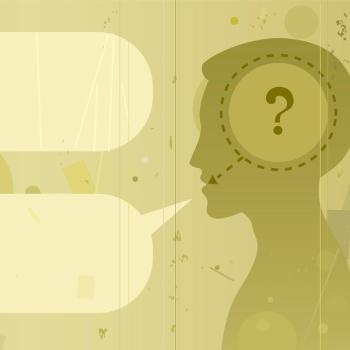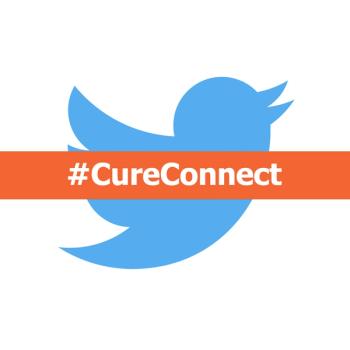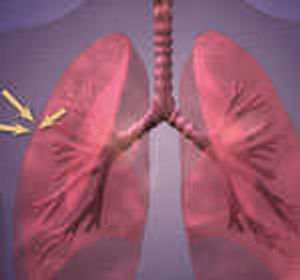
Last night's "In Our Genes: An Evening of Storytelling" was an event that not only raised money for research in BRCA-related cancers, but also aimed to raise the spirits of individuals who have been affected by the gene mutation.

Last night's "In Our Genes: An Evening of Storytelling" was an event that not only raised money for research in BRCA-related cancers, but also aimed to raise the spirits of individuals who have been affected by the gene mutation.

CURE spoke with an expert on the future of treating triple-negative breast cancer, including the potential for immunotherapy, targeted therapy and AR-targeted agents.

Anti-androgen therapies may eventually be used to treat some patients with breast cancer, according to Tiffany A. Traina, M.D.

Optimizing treatment for patients with HR-positive breast cancer means that researchers must first find a way for patients to overcome drug resistance, says William J. Gradishar, M.D.

Educate, engage and energize — those are the three main verbs and goals of the Bladder Cancer Advocacy Network’s (BCAN) first ever leadership summit.

Morris Sherman discusses finding second-line treatments for patients with HCC.

The incidence of NASH-associated liver cancer is growing, prompting researchers to further investigate this subset of patients.

CURE spoke with Ghassan K. Abou-Alfa about the potential of using a vaccinia to treat advanced HCC.

Midostaurin is showing promise for some patients with mastocytosis, a rare disorder that is difficult to treat.

What can online searches tell about a potential cancer diagnosis? Scientists at Microsoft are interested in finding out.

The NCCN recently designated Optune, which has been shown to slow and reverse tumor growth, a category 2A recommendation for some patients with GBM.

Many people may not know about mastocytosis, but thanks to a new online initiative, patients and researchers are gaining a better understanding of the disorder.

When Gilbert Eugene Crawford, Sr. was diagnosed with prostate cancer, his daughter and primary caregiver Valerie Crawford-Schiele was shocked to discover just how few resources existed for patients with prostate cancer and their caregivers.

From 2008 to 2012, the number of HPV-associated cancers diagnosed per year increased by approximately 16 percent compared with the previous five-year period.

Syndros is a liquid version of Marinol soft gel capsules and contains THC, the primary active compound in cannabis (marijuana).

CURE recently interviewed Naveen Pemmaraju to discuss the unique aspects of the MPN community, the pitfalls of social media and the importance of patients and physicians interacting.

Survivors of head and neck cancer often face unique challenges, and physical therapy can help.

Weight-related breast cancer risk is not sufficiently discussed between health care providers and patients, according to a recent study.

Researchers from Japan may have found a way to reduce neuropathy.

On June 14, we'll be co-hosting a tweet chat with Oncology Nursing News to discuss key takeaways from the largest oncology meeting of the year.

A large body of work has shown a clear benefit of exercise in reducing the risk of cancer and improving quality of life. But does perception of the exercise experience as enjoyable, or at least palatable, affect adherence or outcomes?

This study was presented in conjunction with the 2016 annual meeting of the American Society of Clinical Oncology (ASCO), a gathering of over 30,000 oncology professionals in Chicago.

After working as an executive in companies like Google and eBay, Jeff Huber switched gears to work on developing a blood test to detect cancer—a mission that has a personal connection for Huber.

Basketball MVP and cancer survivor Kareem Abdul-Jabbar sat down with CURE for an interview about his experience battling CML.

During the 14th “Focus on Melanoma” patient and educational conference held in Philadelphia, Troy Aikman joined Lynn Schuchter for a “fireside chat” about his life, football and his journey with stage 2 melanoma.

Though patients with myelofibrosis still do not have a large number of therapy options, the approval and success of Jakafi is bringing optimism to those treating this population.

“We can now say that the benefits of early palliative care can extend beyond patient outcomes and can actually positively impact family caregivers,” said Areej El-Jawahri.

The novel therapy explored in this study is designed to help individuals in four areas: education, self-awareness, stress management and cognitive compensatory strategies.

While there have been many recent groundbreaking advances in treating myeloma, Kenneth C. Anderson is optimistic that the future holds even more promise.

As oral cancer treatments continue to be used more frequently, nurses must be able to know that patients are following their regimen.

Published: October 29th 2014 | Updated:

Published: December 8th 2014 | Updated:

Published: December 9th 2014 | Updated:

Published: December 13th 2014 | Updated:

Published: December 20th 2014 | Updated:

Published: January 14th 2015 | Updated: